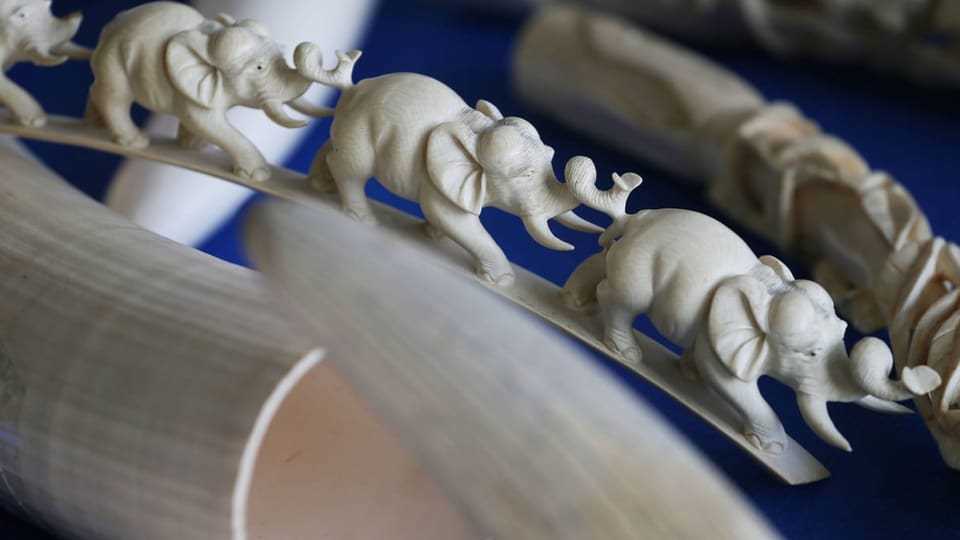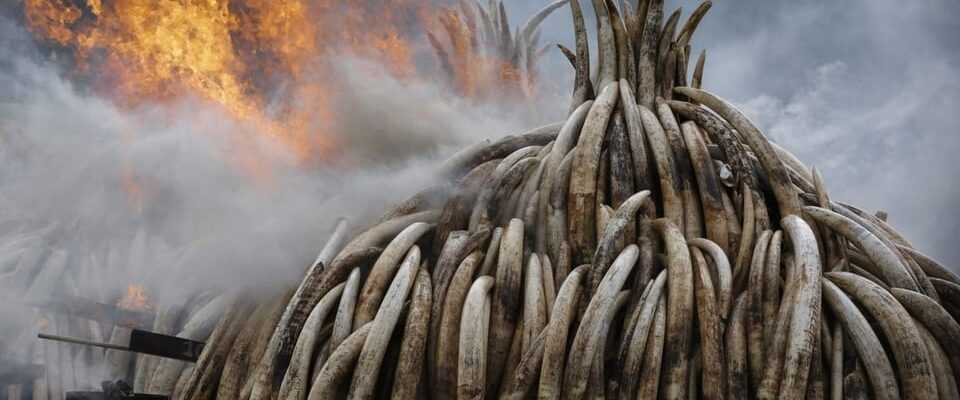contents
Tens of thousands of elephants are killed annually for their tusks. A lot could change now.
The trade in ivory will soon be largely banned in the EU. On January 19th, a legislative package will come into force that will severely restrict imports, exports and intra-EU trade in white gold. The EU Commission had adopted the measures in December and they were then published in the official EU official journal.
The package of laws provides for a few exceptions, for example raw ivory may only be traded for repairs to ancient artifacts. Processed ivory may only be traded if the objects are older than 1947 and have a corresponding certificate. The year 1975 is the limit for musical instruments. However, some of the objects and instruments may only be sold to museums.
Legend:
Tens of thousands of African elephants are killed for their tusks each year. Pictured: incineration of poached ivory in Kenya.
Keystone
In its December communication, the commission wrote that an estimated 20,000 to 30,000 African elephants are being illegally killed for their ivory each year. Internationally, the commercial trade in ivory has actually been banned since 1989 by the Washington Convention on Cites.
But there were a number of loopholes, explains Daniela Freyer from the nature and animal protection organization Pro Wildlife in Munich: “Unfortunately, many countries still allow ivory trade within their own borders, and so far this has also been the case for the EU.”
Tightening will also affect Switzerland
Freyer describes the EU decision as clear progress: The trade is now regulated much more strictly – especially the import and export of ivory is only possible in exceptional cases.

Legend:
Piano keys made of ivory, knife handles or dominoes: ivory is still in great demand – and therefore also lucrative for dealers.
Keystone
The animal rights activist warns, however, that there could still be attempts at fraud: Ivory could be traded as “antique”, although it is more recent than 1947, as stipulated by the law. «Chances of fraud remain. That is why we and other animal welfare organizations have campaigned for a complete ban on the ivory trade for commercial purposes in the EU. ”
In Switzerland, ivory trade is regulated by the Convention on International Trade in Endangered Species. Most of the permitted trade is done with EU countries, writes the Federal Food Safety and Veterinary Office on request. The tightening of the EU would also have an impact on Switzerland, since imports and exports are only possible if the applicable provisions are complied with on both sides.
